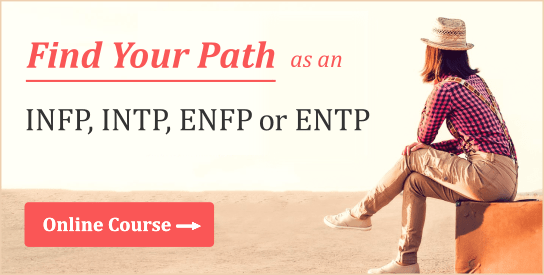
How do we find answers to life’s most pressing challenges?
How can we be revitalized when we feel stuck or stagnant?
How can we experience wholeness after being locked into a single mode of operating?
According to Carl Jung, the most reliable way of addressing these sorts of concerns involves harnessing the power and insights of the unconscious mind. Indeed, I will contend that Jung saw the unconscious as playing an almost God-like role in the psyche. In order to see how Jung arrived at this conclusion, we must first understand the central dynamic in his theory of the psyche: the relationship between the conscious ego and the unconscious mind.
The Ego & the Unconscious
Similar to his contemporary, Sigmund Freud, the fundamental distinction in Jung’s framework is between that which is conscious and that which isn’t (i.e., sub / unconscious). We shouldn’t assume, however, that the two are equal in magnitude. Jungians often liken consciousness to the tip of an iceberg, assigning the remainder to the unconscious. They also envision the conscious mind and one of its primary features—the ego—as fragile and feeble compared to its robust unconscious counterpart. In short, Jungians place a lot of stock in what’s happening beneath the surface of consciousness. In their view, it’s where most of the magic happens.
Despite being only the tip of our psychological iceberg, most of us invest a great deal of energy and trust in our conscious ego. Indeed, many people are essentially fused with their ego identifications—their beliefs, interests, values, personal story, etc.—to the point of believing that the ego constitutes the entirety of who they are. They’re ignorant of their unconscious side—sometimes called the “shadow”—which is abounding with unrealized ideas, wishes, and feelings. Freud once likened ego consciousness to a large building where the lights are on in only a single room. Hence, individuals identifying strictly with their conscious ego don’t realize that the psychological space they inhabit is only a small slice of what’s available to them.

One reason we’re drawn to the ego is it helps us feel in control of our lives. In many respects, the ego exhibits many of the characteristics of the left hemisphere of the brain. This includes a penchant for labeling things, putting them in tidy little boxes in order to make sense and feel in control of them. Indeed, who we are from the perspective of the left-brained ego is little more than a bunch of labels. Besides ignoring our unconscious self (we can’t name what we don’t know), such labels fail to capture the experiential side of human life—what it feels like to be in love, to take a shower, to eat a delicious meal, etc.
The Lens of Personality Type
Jung developed his theory of psychological types as a lens for understanding key aspects of ego consciousness. He espoused that our beliefs, attitudes, and behaviors depend largely on our personality type (e.g., INTP) and its dominant function. The dominant function is the default tool our ego—our signature strength—and we tend to use it whenever possible. And if it brings us happiness and success, why wouldn’t we?
The problem, according to Jung, is that although the dominant function is clearly useful for many things, it often proves insufficient for reconciling the myriad complexities of human life. One aspect of this is simply that, if we want the richest life possible, we’re going to need more than the relatively narrow perspective of a single function. This is why we typologists are constantly yammering on about developing and integrating the non-dominant functions; the more functions we can bring to the table, the fuller our lives will be.
The second reason the ego / dominant function is not sufficient is it has limited access to key psychological resources such as energy, meaning, and insight. The ego is like a laptop computer that’s been unplugged and taken offline. While it has some level of stored power and information, this in no way compares to being plugged in and connected to the internet, where the possibilities are essentially infinite.
By no means was Jung against the ego. For many tasks, it’s perfectly acceptable for the ego to unplug and work on its own power for a while. But there comes a point when ego resources reach a critical low and the unconscious (including some of the non-dominant functions) must step in and pick up the slack.
The Spiritual Nature & Role of the Unconscious
As mentioned earlier, Jungians tend to envision the unconscious as immense in size and potency. I think it’s fair to say that at least some Jungians see it as possessing certain God-like qualities, including coming to our rescue when we’ve hit an ego dead-end.
Jung was understandably concerned about his professional reputation as a psychiatrist. He wanted his work to be taken seriously by his colleagues and educated laypeople. So when discussing the restorative capabilities of the unconscious, he often used the term irrational rather than spiritual. By this he meant that the required intervention needed to come from something beyond the controlling rational ego. In other words, there are times when the ego needs to take its hands off the steering wheel and let the unconscious take over for a while. In Jung’s view, only the unconscious can solve the problems that the ego, however willful and insistent, can’t resolve on its own. Jung believed this fervently and would reiterate it throughout his work.
That said, it’s hard not to see the parallels between Jung invoking the unconscious and a Christian, for instance, petitioning God in prayer. Both involve seeking outside assistance, that is, help from something beyond one’s own ego. We might even say that Jung’s irrational solution involves turning to an internalized God in the form of the unconscious or greater Self.
One key difference, however, is that unlike the Christian view of God, Jung saw no clear distinction between good and evil in the unconscious. For Jung, good and evil are more fluid, intermixed, and interdependent than they are in Christianity. I believe Jung once said something to the effect of there being no light without darkness, no good without evil. Everything depends on the contrast and tension of these opposing forces. Jung also had deep sympathies for Taoism, which teaches that good and evil are inextricably linked, not unlike the feminine and masculine, Yin-Yang principles.
Whatever its moral complexities, Jung was steadfast in his belief that connecting to the unconscious—whether through dreams, intuitions, synchronicities, or otherwise—is a life-giving practice. Given enough patience and attention, the unconscious can furnish the energy and insight we need to surmount even life’s greatest obstacles.
There’s little doubt that Jung was a person of genius. So I find it both striking and refreshing that a man of his talents recognized that the conscious intellect, however powerful, can only take us so far. There are times when we need to relinquish control and submit to something greater than the ego, opening the way to new and revitalizing paths. And whether we prefer to think of this as communing with God or the unconscious may, in the end, be of little practical consequence.
If you’re seeking a new or more fulfilling path for your life, be sure to check out our our online course, Finding Your Path as an INFP, INTP, ENFP or ENTP.
Read More:
Beliefs about Suffering: Psychology, Religion, & Personality Type

Melissa says
Thank you for continuing to release these thought provoking articles. Wonderful !
A.J. Drenth says
You’re welcome Melissa. I’m really glad you enjoyed it.
Allen Robins says
A.J.,
Thank you so much. This post was beautiful! As an INFP, it gave me encouragement to continue my path to visit the center of my soul – from the somewhat shallow world of thought to the rich deep world of raw experience. This path has been hard to describe to others and even myself but I feel drawn to it like a moth to the flame.
Well done and thank you again for sharing your insights and talents with us!
A.J. Drenth says
Thanks so much Allen. I appreciate your notion of the path to the center of the soul.